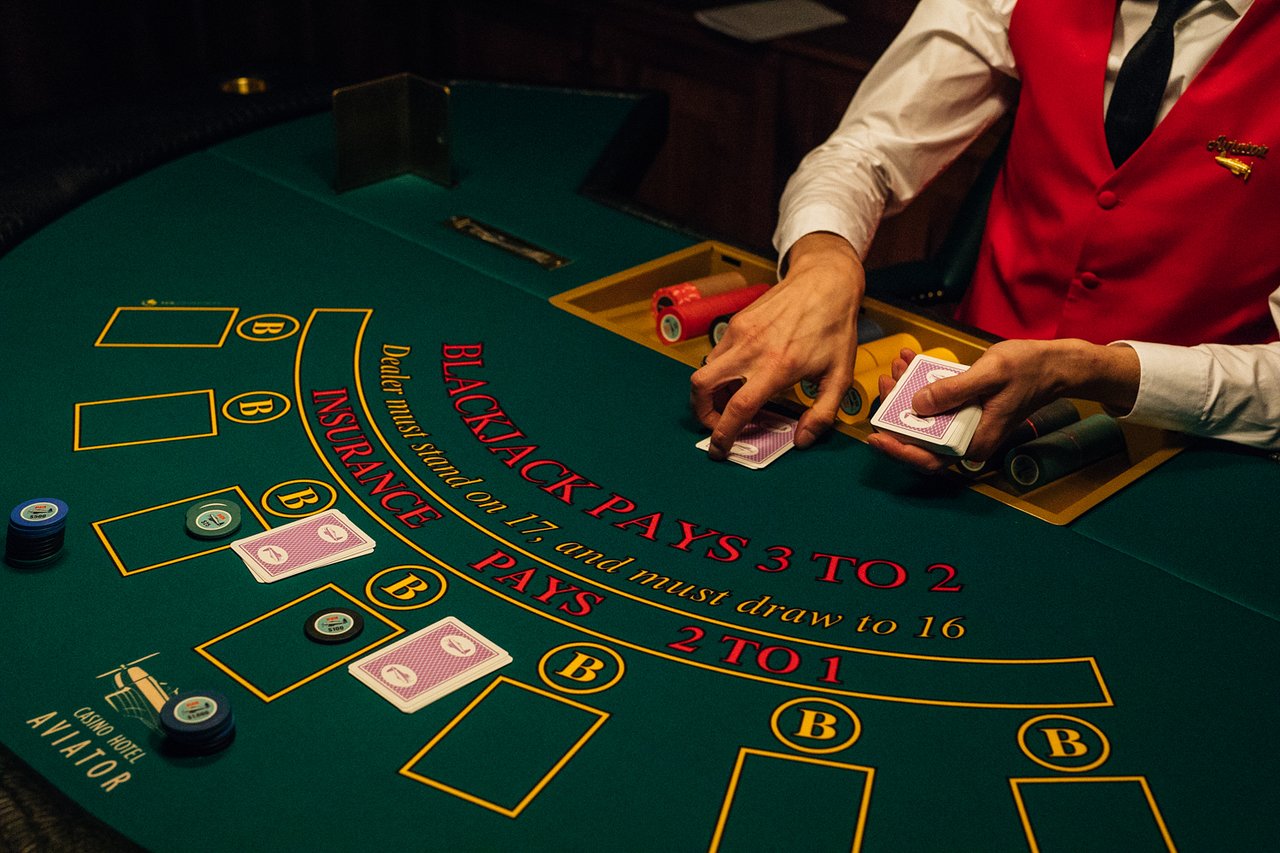In blackjack card counting, when faced with changes in true count, you need to adjust the strategy to play cards at the time, so as to get better results. In fact, according to true count to adjust the strategy can also get an additional 0.2% to 0.3% advantage for players. When the true count is very high, that is, the big cards take a larger proportion in the remaining cards, this will give gamers a greater advantage, so that you can never hesitate to stand with the cards valued at 12 in hands vs. the dealer’s 3, as the rest of the high cards can make the probability of busting for dealers soared. Adjusted strategy is premised on the basic strategy, which is a series of strategy adjustments to coordinate the change of true count to enable the players to obtain greater advantages.
Blackjack Investments Ltd. Invests in oilfield service and manufacturing companies. In blackjack card counting, when faced with changes in true count, you need to adjust the strategy to play cards at the time, so as to get better results.In fact, according to true count to adjust the strategy can also get an additional 0.2% to 0.3% advantage for players.
In About 10% of the time, you must adjust your basic strategyaccording the true count. You should have less doubling, more hitting and less splitting when the true count drops, while more doubling, less hitting and more splitting are required when the true count increases. For example, player’s 9 vs. dealer’s 2, the basic strategy is to hit, but doubling is executed when the true count is high enough. Insurance is another important point in the strategy adjustment, since there would be the probability of 7.5% for dealer to have Ace in hand. Thus, it is significant for us to know when to bet for insurance. If you play multi-deck cards in the gambling game, it is worth to buy insurance when the true count is above +3. In the Hi-Lo cardcounting system, the insurance efficiency is 80% indicating that you have eight times out of ten chance to win when buying insurance based on true count.
Blackjack Investments Stock
Actually, there is a specific indices in the strategy table for each play, some of which are rarely used or they make little profit difference between the two choices to meet your expectation on the hand, so it is wise for player to select some most frequently applied index numbers in the playing process rather than have to remember full list of the numbers. Is an American global investment management corporation based in New York City. Founded in 1988, initially as a risk management and fixed income institutional asset manager, BlackRock is the world's largest asset manager, with $7.4 trillion in assets under management as of end-Q4 2019. BlackRock offers a wide range of mutual funds, iShares ETFs and closed-end funds to help build a diversified investment portfolio. Explore our funds now.
The existence value of adjustment strategy is the emerging probability. On average, if you play 100,000 hands a year, you can expect to see 16 to 10 in 3,500 times, which is the most common case. Reversely, you only get 43 times of pairs 9 vs. dealer’s 2 in the 100,000 samples. Thus the adjustment strategy has less value at this moment, because the frequency that it turns up is relatively low. However, in the game, we have 54% of chance to see cards with value of 12 to 16 in the first two cards, so it is wise to give priority on learning the advanced strategy under these cases with high incidence rate. Also, the adjustment strategy is applied in the case of combination of three or more cards. Here, when you have A, 5, 10 (together 16) in hand vs. dealer’s10, standing should be chosen when you face the true count of 0 or more, which is the same situation as the combination of 10 and 6.


If you can make good use of the advanced strategy, you can respectively see at lest 10% and 25% increase in your advantage when playing six-deck game and signal deck. In addition, the use of these adjustments can make you look more like an ordinary gambler. It is typical habit for the gamblers not card counters that you sometimes hit and sometimes stand with 16 in hand vs. dealer’s 10. Also, the casino would treat you as s a coward, when you stand on dealer’10 despite of 15 in hand. Nevertheless, these adjustments are all based on the corresponding true count. Obviously, adjustment strategy can not only increase the advantages for blackjack players, but camouflage the counter identity of the players.
Blackjack Investments Inc
At much of the time, we would see a hand of 16 vs. dealer’s 7 or 10. As can be found in the basic strategy, it is advised that players should always hit 16 when dealer has the up-card with value above 7, but it seems easy to bust with 16 in hand. Thus, many people are confused about hitting or standing with such a high probability of busting. Actually, when the dealer has a 10 up, he'll bust 23 times out of 100. Interestingly, when he has a 7 up, he'll bust 26 times out of 100 -- not really much difference. And when you hit 16, your own chance to bust is exactly the same whether the dealer shows a 10 or a 7. So far, the two hands seem extremely similar for playing purposes. Then on earth, is it worthy of hitting for getting a lower card or waiting for the busting of dealers?
Suppose you hit your 16 vs. 10 and manage to catch a small card. In fact, you're still probably going to lose the hand because in this situation, only a 4 or a 5 would help. There is only a very slight difference with about 5 hands out of 1000 between hitting and standing on your 16. Because if you hit you won't be losing as much as if you stayed. Here, surrendering would be the best selection if possible. Commonly, mistaken ploppy likes to assume the dealer has a 10 for the second card. In fact, if you did hit your 16 against a 10 and caught a 3 to make 19, you actually only have 53% favorite to win the hand.
Nevertheless, there is a suggestion with many of your 16's containing a 4 or a 5, such as 8/5/3, or9/4/3, or 7/5/4, or 4/4/4/4, etc., even a confirmed basic strategy player should not hit against a 10, but hit multi-card 16's such as 6/3/7, 2/6/8, or even A/6/8/A (no 4 or 5), since a 4 and a 5 are good for the hand of 16 against dealer’ 10 and there is less chance to get a 4 or 5 with more 4 and 5 cards dealt. Another strategy is that, you can also hit with 16v10 if you have 2 cards, and stand if you have 3 or more cards in your hand. The reason is that with a 2-card 16 you hold rather higher cards, thus leaving more low cards for drawing. But if you have a 3-card-16, you already holding lower cards and chances are reduced for drawing another lower card. But as mentioned before, surrender is the best option. Players who try to play as an A.P. need to realize that you are still going to lose half your hands regardless of what you behave. Knowing the count can give a clue on hitting or standing, but it won't change the outcome: 16 vs. a 10 will still result in a loss.

With regards to 16 against a 7, player should never stand it as there are just too many 'outs' that would help to win the hand. That is, if you catch any deuce against a 7, you've probably just made yourself a winner. Though you have exactly the same risk to bust when you hit 16, whenever you don't bust, you have a much better chance to win the hand against a 7 than against the 10. That makes hitting much more worthwhile against the 7 up. Though with 16 against a 7, you will probably lose either way, however, your probability of winning or pushing is better by taking a hit. Statistically, the extra 6.79% decent savings would be met with hit in the 6 deck game.
Blackjack Investments Stocks
Card counters, can vary the playing depending upon which cards have been eliminated from play. But if you're not a card counter, although you should often stand with 16 against a 10, you'll virtually always be confident to hit with any kind of 16 against a dealer's 7 regardless of how many cards it contains. How about when you have 16 against an 8, 9 or A? Same story -- hit it every single time as your habit in which you'll be approaching the destination of success.


